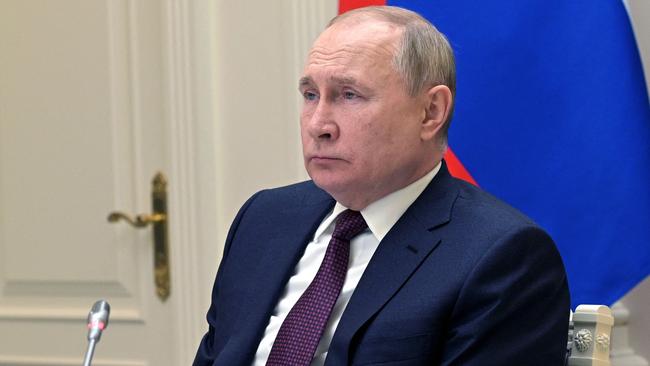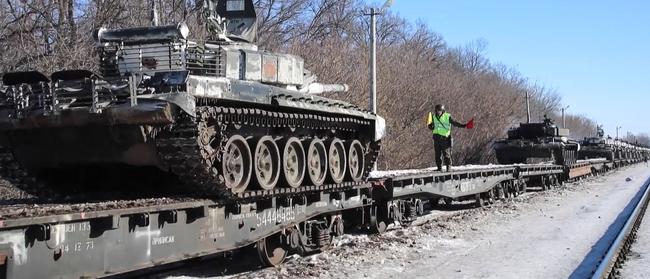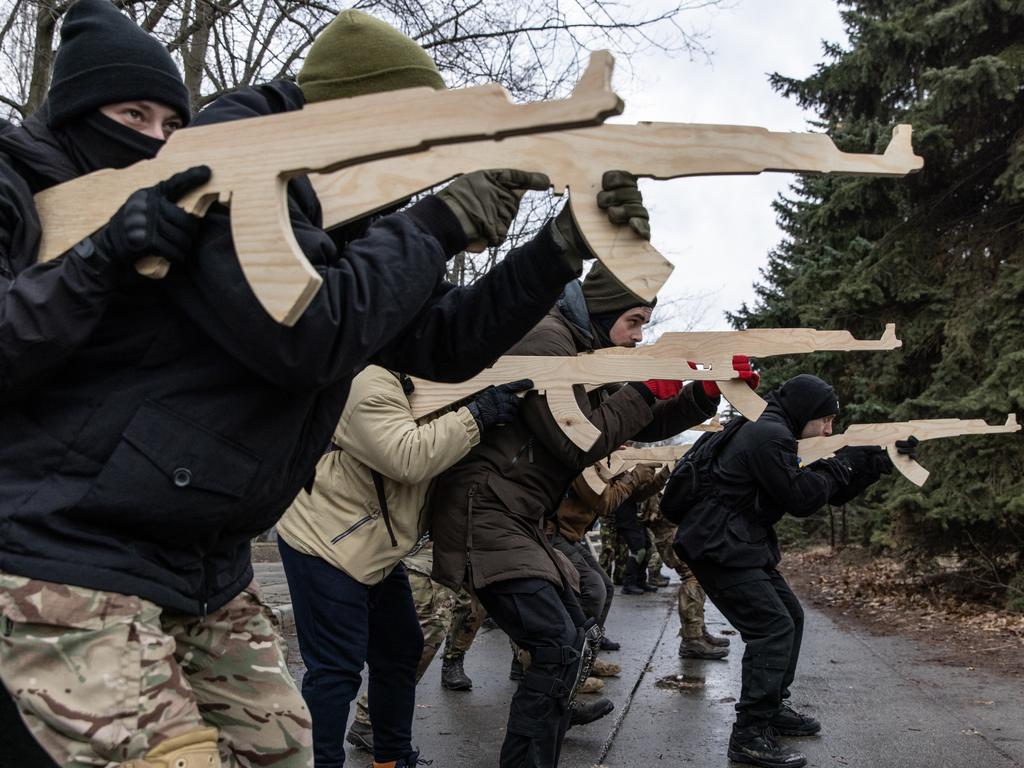Few winners if Vladimir Putin emerges as the victor in Ukraine
The pundits have predicted a costly quagmire for Vladimir Putin if he orders troops into Ukraine. But what if Russia wins?

The pundits have predicted a costly quagmire for Vladimir Putin if he orders troops into Ukraine. The defending army might not surrender. An armed and fiercely nationalistic populace is vowing resistance.
But what if Russia wins? That hypothesis was examined last week by Foreign Affairs magazine in an article predicting the emergence of “a vast zone of destabilisation and insecurity” from Estonia to Turkey if the Russian President wins sovereignty over Ukraine.
In that event, “any idea the EU or NATO can ensure peace on the continent will be the artefact of a lost age”, wrote Liana Fix of the German Marshall Fund and Michael Kimmage, a history professor at the Catholic University of America.
“Cold War analogies will not be helpful in a world with a Russianised Ukraine,” they said, because in the Europe of the Cold War the geopolitical dividing lines were stabilised under the Helsinki Accords in 1975. By contrast, Russian control of Ukraine would insert an unpredictable new dynamic into the heart of the continent and make it impossible for Ukraine’s neighbours to feel secure.
Some analysts expect the price of a full-scale war to be punishingly high for the Kremlin, predicting tens of thousands of civilian casualties in a conflict that could undermine Putin’s support among Russia’s elite and endanger its economy.
But Putin’s analysis may differ. His intervention in the Syrian civil war in support of President Bashir al-Assad in 2015 delivered tangible strategic gains but also defied Western predictions that Russian troops would become mired in a new Afghanistan or Vietnam.
General Richard Barrons, Britain’s former commander Joint Forces Command, agreed that Putin may have concluded victory was possible.
“We need to take the challenge from Russia seriously; the stakes are really high,” he said, adding that the increasingly isolated Russian leader may have an eye on his legacy through a historic mission to bring Ukraine back under Moscow’s control.
“He’s been in power for a really long time and has probably lost all self-doubt,” Barrons said. “What seems absurd to us might seem entirely rational to him.”
A Russian victory “is not science fiction”, the authors of the Foreign Affairs piece say.
It would prompt a US pivot to Europe and revive NATO, but only if a president committed to the Western alliance were in the White House. A Donald Trump re-election in 2024 might destroy NATO “at Europe’s hour of maximum peril”.

The ripple effects would be global and profound. China would potentially suffer in the economic fallout from a war in Ukraine but a long-term White House focus on Europe to shore up American allies against Moscow would leave Beijing with a freer hand to pursue its strategic goals in other arenas, most obviously Taiwan.
Moscow’s victory would tip Europe and the US into “a state of permanent economic war with Russia”. Russia would parry sanctions with “cybermeasures and energy blackmailing … China might well stand on Russia’s side in this economic tit for tat”.
John Sawers, a former head of MI6, agreed that making a basket case out of Ukraine would be a “victory” for Putin. “He does not want a successful, democratic, free-market, rule-of-law Ukraine next to Russia as Russians will say, ‘Why can’t we have that?’ ”
NATO, though, he argued, had already been given new impetus by the crisis. “A sense of resolve and unity across the Atlantic has been strengthened,” he said.
Barrons believed Putin could declare victory on a variety of results, including the secession of eastern regions or the capture of cities such as Odessa or Kyiv.
“The major question in any of these cases, or even if Putin backs down, would be how to handle him for his remaining tenure,” he said.
While authoritarian Russia can marshal military and commercial might against rivals, Britain “is not in the habit of telling the City to make yourself poorer to satisfy a national imperative”, said Barrons, adding that London must stop acting as a magnet for Russian money.
“Now we will have to stand up for our system and values,” he added. “This is a new epoch.
“We’re looking at a more challenging world in which the West is no longer in charge – the postwar era is over and with it many things we took for granted.”
The Sunday Times





To join the conversation, please log in. Don't have an account? Register
Join the conversation, you are commenting as Logout